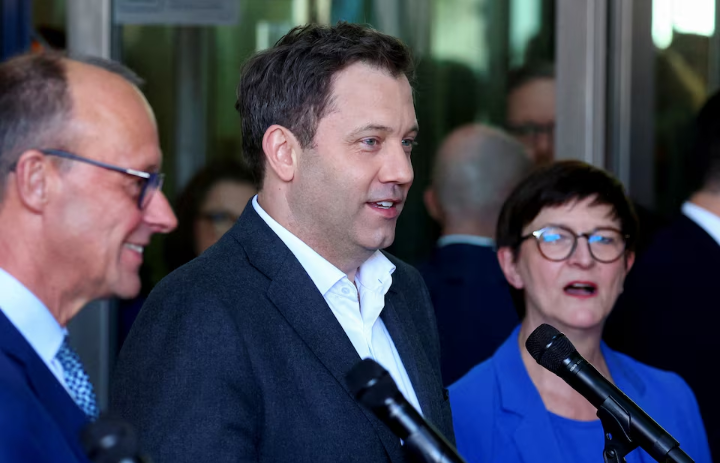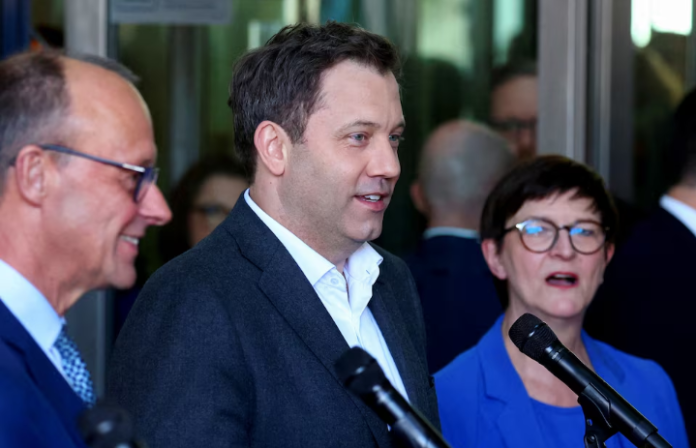Germany is on the brink of a political and economic turning point. Friedrich Merz, leader of the Christian Democratic Union (CDU), has secured a long-awaited coalition agreement with the center-left Social Democrats (SPD), clearing his path to becoming Germany’s next chancellor. But the timing couldn’t be more tense—Merz steps in as global markets reel from a fresh wave of tariffs imposed by U.S. President Donald Trump, raising fears of a looming recession.
After clinching victory in February’s election, Merz failed to win an outright majority, forcing weeks of coalition negotiations. The far-right Alternative for Germany (AfD) party surged to second place in the polls, reshaping Germany’s political landscape and increasing pressure on traditional parties to form a stable government.
The CDU-SPD coalition deal, expected to be officially unveiled at a press conference today, comes with ambitious goals: reigniting Europe’s largest economy, ramping up defense spending in the face of Russian aggression, and reforming migration policies. Merz has been outspoken about distancing Germany from what he calls an “unreliable” United States under Trump, pledging to strengthen European defense and support domestic industries struggling under high costs and weakened global demand.
However, the new coalition still faces internal hurdles. The SPD’s rank-and-file members must approve the deal through a party vote. If passed, the chancellorship will shift back to the conservatives, ending the three-year leadership of Olaf Scholz, whose term was overshadowed by the economic fallout of Russia’s 2022 invasion of Ukraine.
Leaked details from the coalition talks hint at key policy shifts, including plans to reduce corporate tax rates starting in 2028 and overhaul welfare programs. These moves aim to stimulate investment and ease the financial burden on working-class citizens.
Despite these efforts, Germany’s economy remains fragile. Forecasts for 2025 GDP growth have been slashed to a mere 0.1%, with the country already having endured two consecutive years of economic contraction. Trump’s sweeping tariffs are the latest blow to Germany’s heavily export-reliant economy, prompting fears of another recession. Outgoing Finance Minister Joerg Kukies echoed this concern, warning that escalating trade conflicts could tip Germany over the edge.
In response, Merz and his allies are pushing for stronger transatlantic ties, advocating for a new free trade zone between the EU and the U.S., while remaining open to further global trade deals.

Yet public confidence in Merz is far from solid. A new Ipsos poll shows the AfD leading national popularity with 25%, pushing Merz’s CDU/CSU bloc to second place. Another survey found that 60% of Germans don’t believe Merz is fit to lead, including nearly a third of his own party’s voters.
Even so, Merz is moving fast. He has already passed legislation allowing massive borrowing for defense and infrastructure upgrades—an about-face from his previously strict fiscal stance. Critics argue this contradicts his pledge for budget discipline, but supporters say bold action is needed to stabilize the economy.
Now, as Germany prepares to shift gears politically, all eyes are on Merz. Can he steer the country through economic uncertainty and political polarization? Or will the rise of populism and global instability prove too much for Europe’s largest economy?



